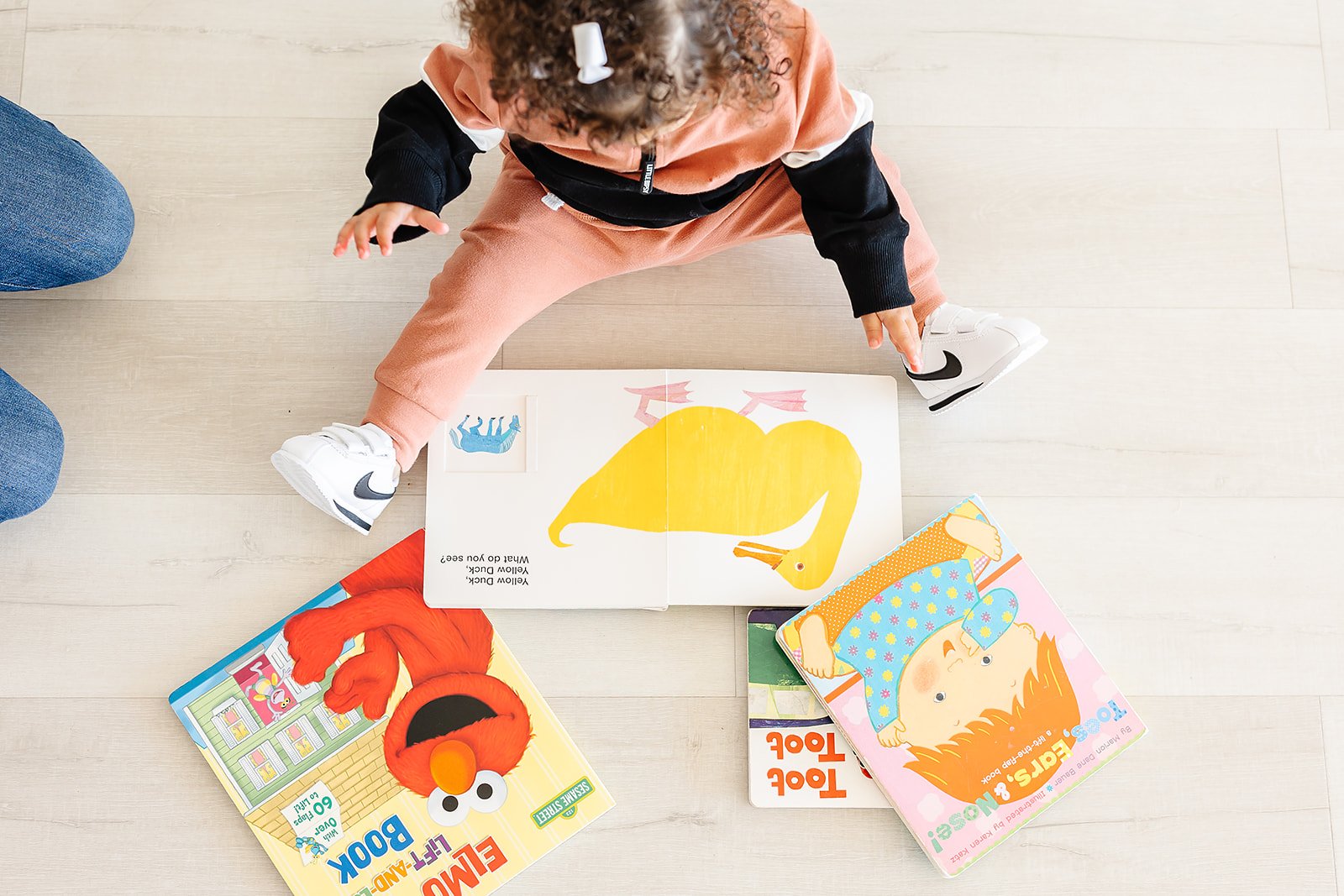Communication Milestones: Birth to 1
Curious what communication milestones your little one should be reaching? While each child develops differently and at their own pace, be on the look out for these skills. If you have a concern regarding your child’s communication development, contact us today for a free screening and consultation in the home.
Birth to Three Months
Quiets or smiles when you talk
Makes sounds back and forth with you
Makes different sounds when they are happy or upset
Coos and makes vowel like sounds
Recognizes familiar faces and objects
Turns toward voices and alerts to sounds
Four to Six Months
Giggles, laughs, blows raspberries, & responds to facial expressions
Looks at objects of interest and follows objects with their eyes
Reacts to toys that make sounds
Vocalizes different vowel sounds—sometimes combined with a consonant—like uuuuuummm, aaaaaaagoo, or daaaaaaaaaa
Seven to Nine Months
Looks at you when you call their name
Stops for a moment when you say, “No.”
Babbles long strings of sounds, like
mamamama, upup, or babababa
Looks for loved ones when upset
Raises arms to be picked up
Recognizes the names of some people and objects
Pushes away unwanted objects
Ten to 12 Months
Reaches for objects, points, waves, and shows or gives objects
Imitates and initiates gestures to participate in social interactions and playing games, like blowing kisses or playing peek-a-boo
Tries to copy sounds that you make
Responds to simple words and phrases like “Go night night” and “Look at mama.”
Says one or two words—like mama, dada, hi, and bye
How can I support my child?
Talk to your child, look and respond when they make noises.
Make silly faces and laugh together and imitate the sounds they make.
Games like peek-a-boo, clapping, blowing kisses, and waving bye-bye are great for teaching how to take turns and use gestures.
Narrate your day. Say things like “Mommy is changing your diaper”; “You are drinking milk”; and “Oh, these crackers are yummy!”
Talk about where you are going, what you are doing and who/what you see. Say things like, “We are going to the park. The park has a swing. You can go on the swing.”
Teach common sounds, like “A cat says meow. A car says beep.’”
Sing songs, tell stories, or read books every day.
Talk to your child in the languages you are most comfortable using. Early and frequent exposure helps your child learn language best.
If you or your pediatrician have a concern regarding your child’s communication development, contact us today for a free screening and consultation. When it comes to starting therapy, the earlier the better for positive outcomes.
Source: ASHA Communication Milestones 2023



